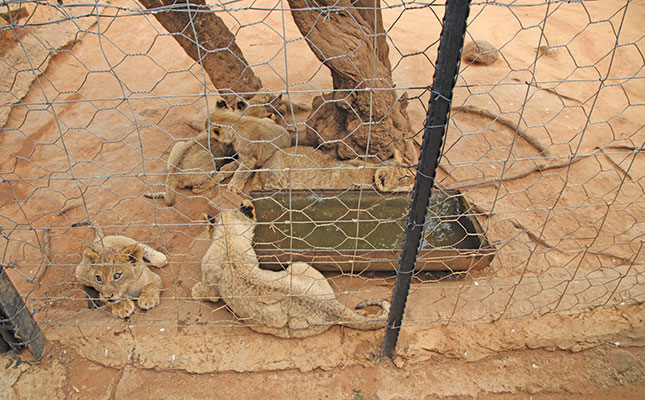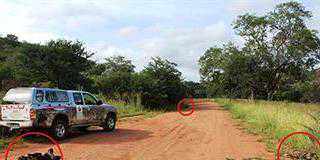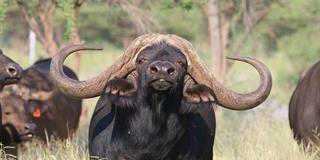
Photo: Four Paws
She told Farmer’s Weekly that humans were not meant to be anywhere near lions in the wild.
“It’s indefensible to teach children from a young age that it’s acceptable to handle a lion, irrespective of its age. Lion cubs younger than six months old need plenty of rest. They require between 16 and 20 hours of sleep per day for proper development.
READ ‘Captive lion industry a conduit for illegal wildlife trade’
“The constant cycle of being picked up and petted interrupts the animals’ sleeping patterns and obviously has a negative impact on their health and healthy development,” Meyer said.
Excessive and rough handling could result in the cubs suffering adverse effects ranging from mild discomfort to pain and serious injuries, since a young cub’s bones were soft and not fully developed. Handling a cub with nutritionally induced bone problems was painful to it and might result in bone fractures, she added.
It could even cause permanent and fatal health problems in the long term. A combination of stress and inadequate nutrition, hygiene, biosecurity and veterinary input could also result in impaired immunity and susceptibility to disease.
Petting was also a major stressor among cubs. Meyer said the cubs were more often than not prematurely removed from their mothers, which was stressful to both the mother and the cub.
A recent study led by the animal welfare organisation FOUR PAWS and New York University (NYU) in the US revealed that cub petting normalised the touching of young lions, perpetuated captive breeding, and had dire implications for the African lion species.
READ ‘Social media undermining elephant conservation’
FOUR PAWS said in a statement that an estimated 61% of cubs used for petting in South Africa were younger than three months old and some were as young as a few days old, with their eyes still shut. Researchers found that cubs regularly exhibited stress behaviour, including avoidance and aggression.
Dr Becca Franks, assistant professor of Environmental Studies and co-director of the NYU Wild Animal Welfare Program, said: “Our findings show that cub-petting facilities may cater to people with good intentions for the lions, but there are still grave welfare concerns.
“Lions that begin their lives in such facilities become part of a larger cycle of harm, including the canned hunting industry, exotic pet trade, and the black market for wildlife parts. While these activities are well known, the exploitation of cubs at tourist attractions is less well understood.”














